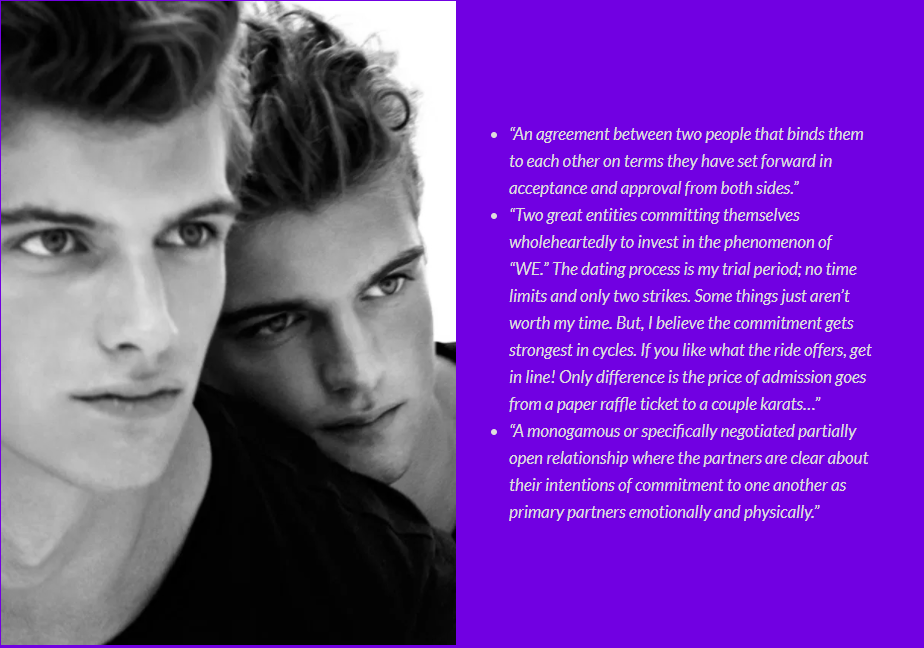Much research on LGBT relationships is often problem-focused. Relationship violence, sexual risk-taking, or challenges faced by a minority group (violence and discrimination). What is the gay youth’ definition of a serious relationship?
LGBT couples generally have the same relationship goals, have the same rates of relationship success/failure, and benefit from the same skills that make any serious relationship last in the long-term.
While much of the nation is focused on marriage equality, the question still remains: How do young LGBT-identified individuals define “serious” relationships for themselves? The IMPACT Program’s Project Q2 asked participants to define serious relationships in their own words.
Open-ended responses were examined and coded by commonly mentioned key words. The most commonly used terms to define “serious relationships” were committed (38%), monogamous (32%), and love/loving (20%). These were followed by trust (15%), honesty (12%), exclusive (12%), supportive (11%) caring (9%), mutual agreements (8%), and faithfulness (8%). Loyalty, respect, and working together were each mentioned by 6% of respondents.
Less common responses
Less common (< 5%) descriptors included bonded or connected, open communication, future-oriented, being there for each other through “good and bad,” and intimacy. A few others mentioned family, marriage, and romantic or sexual relationships as part of their definition.
Another common theme, mentioned by 16% of respondents, was the length of relationship— most often six months to a year, with frequent or daily contact, or living together. If the time or frequency was not specified, participants often described a “serious” relationship as long-term or long-lasting.




Of course, looking at key words or length of commitment does not give an accurate portrayal of the complexity and richness of participant responses.
Below are a few samples of how participants defined a serious relationship:
- “An agreement between two people that binds them to each other on terms they have set forward in acceptance and approval from both sides.”
- “Two great entities committing themselves wholeheartedly to invest in the phenomenon of “WE.” The dating process is my trial period; no time limits and only two strikes. Some things just aren’t worth my time. But, I believe the commitment gets strongest in cycles. If you like what the ride offers, get in line! Only difference is the price of admission goes from a paper raffle ticket to a couple karats…”
- “A monogamous or specifically negotiated partially open relationship where the partners are clear about their intentions of commitment to one another as primary partners emotionally and physically.”
‘
For young adults who identify as LGBT, being mindful of how serious relationships are defined and how definitions may change with experience is key to forming healthy long-term relationships. In this study, commitment, monogamy and love are important factors that define “serious.” However, to make these relationships last, others identify key components related to understanding and being understood, communication and problem solving, and actively participating in mutual caring, support, and respect for each other.















